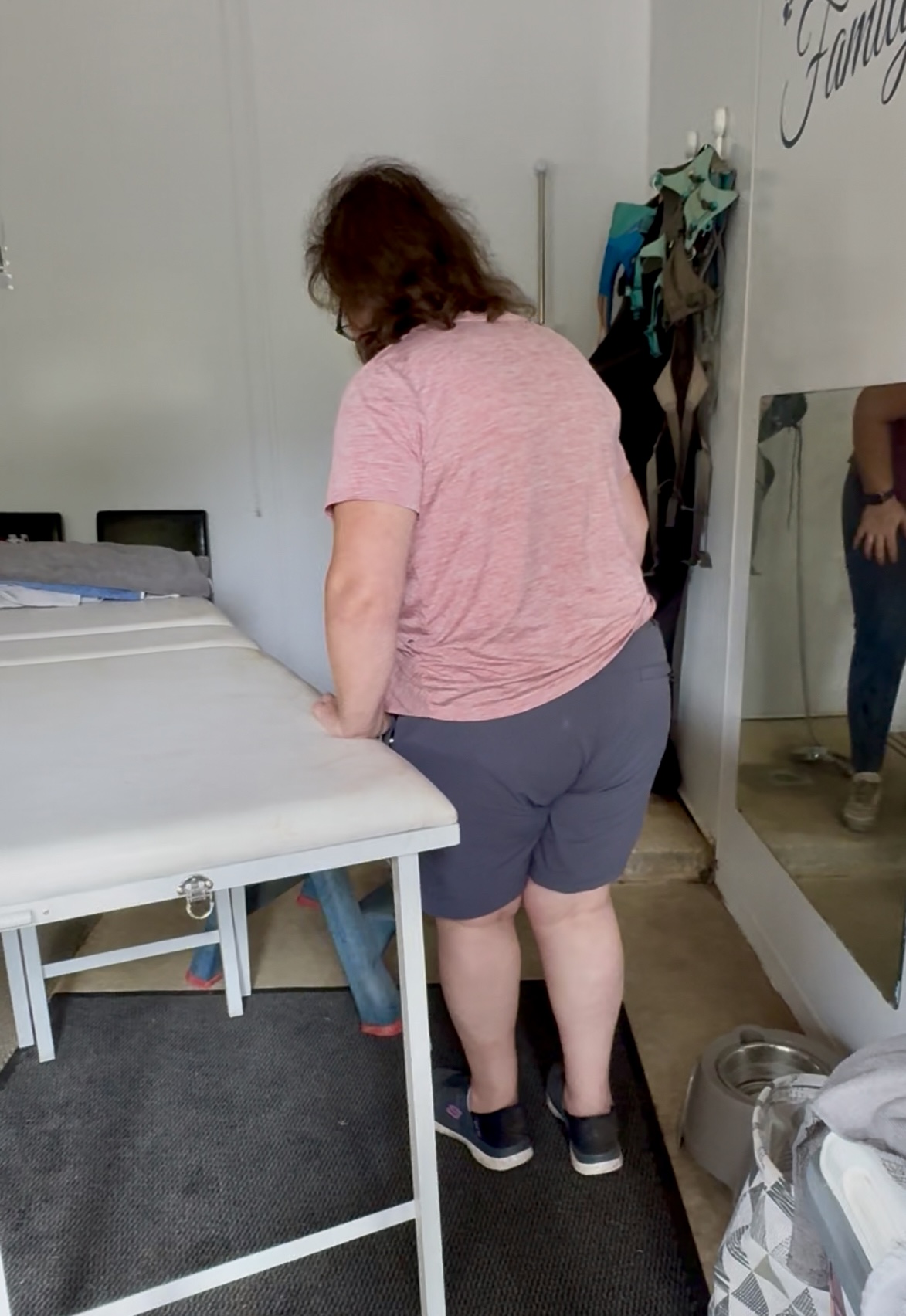
Kit Li
Three months ago, I received a female patient referred by Dr. TJ Wang, a brain acupuncture expert in the UK. [For more details, please refer to my earlier blog: A Case Study of Parkinsonism with OPA1 Mutation Treated with Acupuncture: A TCM Approach to Neurodegeneration (Part I).]
In early June, Miss E, a 54-year-old woman diagnosed with Parkinsonism associated with an OPA1 gene mutation (1) sought Brain Acupuncture treatment with me. This is not a common presentation, and typically the prognosis is quite challenging. Over the past three months, she has received twelve sessions of brain acupuncture combined with Chinese herbal medicine.
An assessment was conducted at her 10th session, approximately two weeks ago.
1) Mobility – 10% improvement
- Gait steadier with walking stick
- Greater independence (able to climb onto the massage bed unaided)
2) Hearing – 20% improvement
- Tinnitus (right ear) markedly reduced
- Improvement appears linked to both neurological regulation and menopausal balance
For the past six weeks, she has been prescribed two modified herbal formulas, Modified Bu Yang Huan Wu Tang (加减补阳还五汤) (2) and Modified Geng Nian Kang (加减更年康) (3). Since beginning this regimen, her general vitality has improved, Qi and Blood have been strengthened, and overall systemic resilience is better. The combined approach of brain acupuncture and Chinese herbal medicine appears to provide not only symptomatic relief but also functional improvement in independence and quality of life.
- Modified Bu Yang Huan Wu Tang (加减补阳还五汤): Tonifies Qi, invigorates Blood, unblocks channels, and addresses neurological and circulatory deficits. Traditionally used post-stroke, here adapted for neurodegeneration.
- Modified Geng Nian Kang (加减更年康): Regulates Yin/Yang during menopause, calms Shen, harmonizes Liver and Kidney, and stabilises the menopausal/endocrine aspect. This support often overlaps with mood, sleep, and systemic resilience.
Together, this combination strengthens both the “Root” (Qi, Blood, Kidney essence) and the “Branch” (Parkinsonian symptoms, tinnitus, gait).
Next Steps:
- Continue the current dual-formula approach.
- Address residual symptoms: muscle rigidity in the anterior thighs and persistent tremors require formula fine-tuning.
- Monitor evolving patterns: including sleep quality (insomnia/dream-disturbance common in Parkinsonism), mood regulation (irritability, anxiety, depression linked with both Parkinsonism and menopause), and autonomic function (bowel, bladder, sweating).
- Maintain close collaboration with her biomedical team (neurologist, GP) to ensure integrative outcome tracking and support.
References:
1) Syndromic parkinsonism and dementia associated with OPA1 missense mutations
https://pubmed.ncbi.nlm.nih.gov/25820230/
Optic atrophy and parkinsonism in a family associated with OPA1 mutation
2) Bu Yang Hua Wu (补阳还五汤): the classical formula name (by Qing dynasty physician Wang Qing-Ren), literally “Tonify the Yang to Restore the Five [Organs/Limbs] Decoction,” mainly for post-stroke hemiplegia due to Qi deficiency and blood stasis.
https://www.sciencedirect.com/science/article/abs/pii/S0944711322003919
https://pubmed.ncbi.nlm.nih.gov/40972726/#:~:text=Abstract,underlying%20molecular%20mechanisms%20remain%20unclear.
3) Modified Geng Nian Kang (更年康) has 10 ingredients:
Shudihuang (Radix Rehmanniae Preparata): nourishing yin and blood
ShanYao (Chinese Yam): tonifies qi in Lung and Spleen
Zhimu (Anemarrhena asphodeloides Bunge): expels heat
Danggui (Chinese Angelica Root): nourishing blood...etc




No comments:
Post a Comment